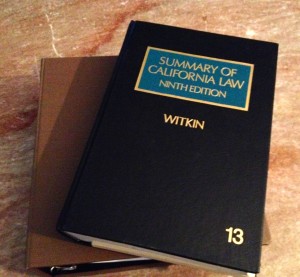Attorney Liability to Non-Clients, Part 2: The Intended Beneficiaries
As a general rule, attorneys can only be held liable for malpractice where the plaintiff (the injured party) was the attorney’s client at the time the malpractice occurred.
However, courts have also held attorneys liable to non-clients in a narrow, specialized range of cases. One of these occurs when the person (or company) injured by the attorney’s professional negligence was not a client, but was an intended beneficiary of the attorney’s legal services.
Let’s look at these “intended beneficiaries” in more detail.
According to courts, holding attorneys liable to intended beneficiaries of their legal services does not place an unfair burden on lawyers, in part because the “intended beneficiary” must be a person or entity that the original client intended to benefit from the lawyer’s services — and, generally, must also be someone the lawyer knew was intended to benefit in this way.
A good example of the “intended beneficiary” occurs in estate planning cases.
Where someone hires a lawyer to draft a will or trust, the client generally does so with the express intention that certain people (usually, the client’s heirs) will benefit from the attorney’s estate planning services.
The heirs “benefit” because the documents drafted by the attorney enable them to inherit the client’s property, and to do so (presumably) with the added benefits of reduced after-death costs and legal processes. (For example: a properly drafted trust often allows the heirs to receive a deceased person’s estate without the need to go through probate proceedings, thereby saving time and legal/court costs.)
Courts have held that heirs and beneficiaries named in a will are “intended beneficiaries” of a lawyer’s services, and that when the lawyer commits malpractice in drafting the estate planning documents, those heirs and beneficiaries have standing to sue the attorney for malpractice, even if they were not the lawyer’s clients.
However, courts have also limited this liability to malpractice in the form of drafting defects, and not to all aspects of estate planning practice. Generally speaking, a lawyer has no malpractice liability to unnamed beneficiaries, to heirs and beneficiaries who wanted to receive more than they were left in a properly drafted will or trust, or to beneficiaries of a will that the client never signs.
Liability to non-parties, in this context, extends only to the lawyer’s mistakes, and only when those mistakes result in the client’s clearly expressed desires failing to have legal effect because the lawyer drafted the documents improperly.
INCIDENTAL BENEFICIARIES ARE NOT “INTENDED BENEFICIARIES”
Lawyers cannot be held liable to “incidental beneficiaries” – meaning non-clients who may (or do, actually) benefit from the attorney’s services but who are not intended beneficiaries thereof. The lawyer owes no duty of care to such persons, whether or not the lawyer knows (or should know) that these persons (or companies) will benefit from the legal services provided to a client.
The mere fact that someone “may” benefit from legal services offered to another does not make that person an intended beneficiary of those legal services.
***
As you can see, it takes an experienced eye to tell the difference between an intended beneficiary and an incidental beneficiary. If you believe you may have a claim against an attorney (either on your own account or as a third-party beneficiary of the legal services rendered) consult an experienced malpractice practitioner immediately. Do not delay, as the passage of time may harm your legal rights.















